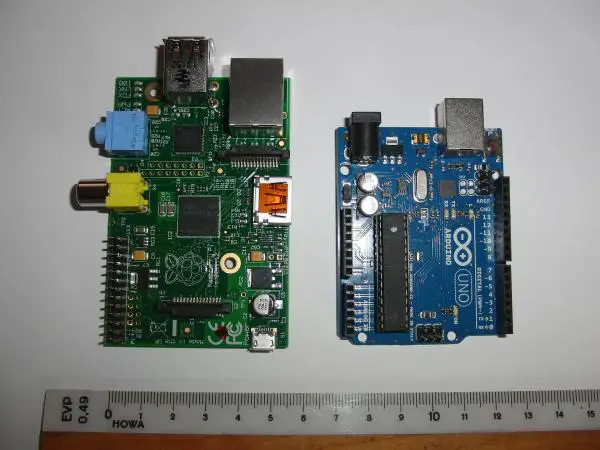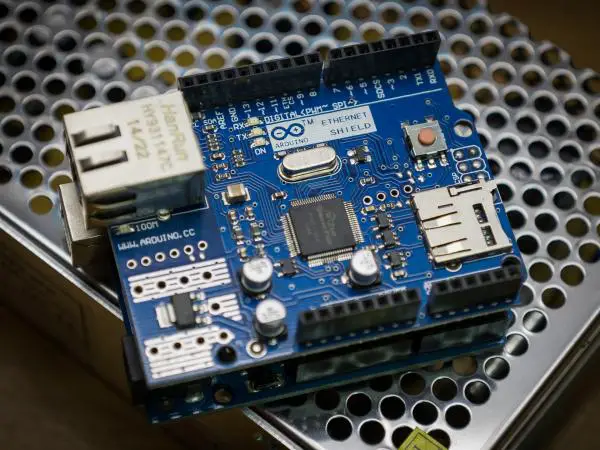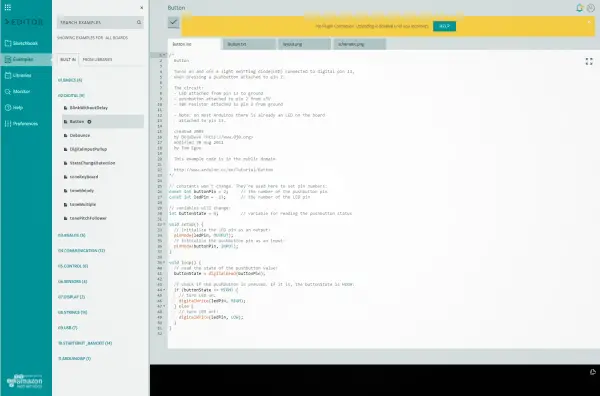Arduino stands for several things: a concept, hardware in the form of a microcontroller and software for programming. There are also a number of extensions. We explain what you need to know about Arduino below.
No replacement for Raspberry Pi
First of all, it doesn't hurt to start with what an Arduino isn't. The name is often used in connection with the Raspberry Pi or other single-board computers. The Raspi is actually nothing more than a complete computer, just very small and with graphics, audio, network and so on on a single circuit board. And on top of that comes a normal operating system..
 On the left the Raspberry Pi, on the right an Arduino board
On the left the Raspberry Pi, on the right an Arduino board Arduino, on the other hand, is an entire platform based on open source licenses . Both software and hardware (specifications) can therefore be freely used and adapted. The hardware, however, is not a whole computer, just a microcontroller . These Arduino boards are basically only designed for one very simple matter: They can read input signals and derive output signals from them . In practice, this means that the boards receive input in the form of sensor data (temperature, humidity, etc.) or by pressing a button or a Twitter message fed in by the software. For the output side, for example, motors are available that can extend or retract a roller blind, adjust the lighting or the like. Very often Arduino projects are about automation, about interaction with the outside world. To implement this, there is the Arduino Programming Language and an associated development environment.
An important aspect is the open source background : Both the source code of the software and the plans for the hardware can be used by anyone and adapted to personal needs - a dream for hobbyists..
hardware
The basis for projects is usually the Arduino Uno for a good 20 euros. The board has an ATmega328P microcontroller, runs with the typical 5 volts, has 14 input / output connections (I / O pins), 32 kilobytes of flash memory, USB connection and runs at a moderate 16 megahertz - even the specs show the difference to the Raspi. In addition to the Uno, there are many other official (!) Boards, such as the Genuino 101 for around 30 euros, which is based on an Intel microcontroller and, for example, supports Bluetooth and has a gyroscope on board. And for mini projects, the Arduino Nano is a real miniature for 20 euros, which is otherwise similar to the Uno. In addition to the boards, there are the so-called shields , Expansion boards, without which you can't really do much with the boards. An example: The Arduino Motor Shield for a good 20 euros enables the control of electric motors. Ethernet is only available via a separate shield.
 Arduino board with an ethernet shield over it.
Arduino board with an ethernet shield over it. The variety of hardware is enormous and on the official site ( https://www.arduino.cc/en/Main/Products ) you will find over 30 products, from the Uno, to various shields, to more powerful boards or mini-boards for wearables. And at electronics dealers you can also find all kinds of Arduino hardware from non-official sources - but of course, thanks to open source, they are completely legitimate..
software
On the software side, it looks much clearer. There is the Arduino IDE and the Arduino Web Editor , which is nothing more than the IDE in the cloud. Essentially, the Arduino language is a series of C / C ++ functions and so the devices can also be programmed directly with C / C ++.
 The web editor is simple but functional - and filled with helpful examples.
The web editor is simple but functional - and filled with helpful examples. In short: Arduino is a handicraft platform made up of various microcontroller boards, hardware extensions and a programming language including its own IDE - and gigantic documentation, thanks to a huge user base. By the way: Arduinos are often seen in the company of Raspis. One takes care of any calculations, the other controls the equipment.
By the way: With Arduino you can also aim for more unusual projects, such as growing lettuce.